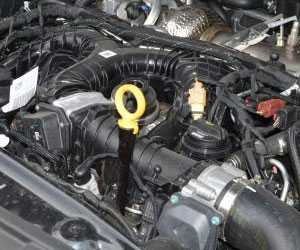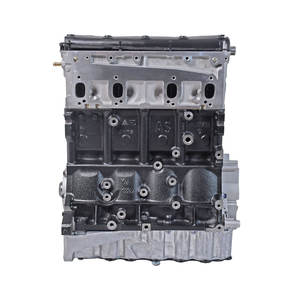Important Factors To Consider and Tips for Selecting the Right Engine for Your Needs
Choosing the ideal engine is a complex choice that calls for mindful consideration of various factors to make certain optimum efficiency for your particular requirements. The complexities of engine choice expand beyond these fundamentals, triggering a more detailed exam of important aspects that can inevitably influence your contentment and success.
Determine Your Objective
Determining your purpose is an essential initial step in selecting the appropriate engine for your demands. Comprehending the details application you desire will certainly assist your decision-making procedure and make certain that you pick an engine that straightens with your functional needs. Whether you need an engine for a business automobile, commercial machinery, or an entertainment job, each scenario needs different performance features and abilities.
Take into consideration the atmosphere in which the engine will certainly operate. Will it undergo heavy lots, extreme temperature levels, or extended usage? Assessing these variables will aid you identify the needed power output, fuel performance, and durability required to meet your goals.
Furthermore, think of the long-lasting effects of your selection. Spending plan constraints, maintenance demands, and schedule of components are vital factors to consider that will certainly affect your general complete satisfaction and functional effectiveness.
Eventually, expressing your purpose will enhance the option procedure and empower you to make an informed choice. By plainly specifying your purposes, you can assess prospective engines a lot more effectively and choose one that not only fulfills your present needs yet additionally sustains your future goals.
Evaluate Engine Specifications
Once you have actually plainly verbalized your purpose, the following action is to assess engine specs. This process involves a detailed examination of various technological information that can dramatically influence efficiency and viability for your meant usage.
Begin by analyzing the engine's horsepower and torque scores. Horse power is crucial for figuring out the engine's ability to execute job, while torque is vital for understanding just how well it can deal with heavy loads or velocity. Furthermore, consider the engine variation, as it typically correlates with power outcome and effectiveness.
Following, take a look at the engine typeâEUR" whether it is a gasoline, diesel, or different fuel engineâEUR" as each kind has distinct attributes and applications. Focus on the engine's arrangement (e.g., inline, V-type), as this can affect dimension, weight, and total performance.
An additional important facet is the engine's cooling system, which can affect reliability and upkeep needs. Evaluate the supplier's credibility and service warranty offerings, as these can supply insights into lasting performance and assistance. Thoroughly reviewing these specifications will certainly help ensure that you choose an engine that aligns with your certain demands and operational goals.
Take Into Consideration Gas Efficiency
Gas efficiency is an important aspect to consider when choosing an engine, as it straight influences operational expenses and ecological sustainability. An engine's gas efficiency is generally gauged in miles per visit site gallon (MPG) for vehicles or in particular fuel usage (SFC) for aircraft and marine engines. Higher gas performance not only minimizes the quantity of gas taken in however likewise decreases greenhouse gas exhausts, making it a responsible choice for eco-conscious consumers.
When examining engine alternatives, it is necessary to examine the driving problems and meant use. Engines maximized for freeway driving may display much better fuel effectiveness contrasted to those created for stop-and-go web traffic. Furthermore, take into consideration the engine's modern technology, such as turbocharging or crossbreed systems, which can significantly enhance fuel efficiency.

Assess Upkeep Requirements

Some engines might require more constant oil modifications, filter substitutes, or specialized maintenance, which can influence your operational downtime. Engines with extensive popularity normally have better parts schedule, minimizing lead times throughout repair work.
An additional crucial element is the technological know-how needed for maintenance. Some engines may necessitate specialized training for professionals, which could limit your choices for company. Evaluate whether the engine's layout allows for very easy access to parts typically requiring maintenance, as this can significantly impact labor prices.
Budget Your Investment
Recognizing upkeep needs is just one aspect of selecting the best engine; financial considerations play a similarly crucial duty (amarok engine for sale). Establishing a clear budget is important, as it influences not only the preliminary purchase rate yet additionally lasting functional prices
When budgeting, consider both the recurring expenditures and ahead of time prices such as gas effectiveness, maintenance, and prospective repair work. A seemingly budget-friendly engine might sustain higher prices with time because of poor gas economic situation or regular upkeep requirements. Furthermore, review the accessibility and cost of best site extra components, in addition to the guarantees offered by suppliers, which can give monetary protection versus unexpected expenditures.
It is likewise important to consider possible financing alternatives or renting arrangements, which might minimize immediate economic worries. Balance your desire for sophisticated features with your spending plan restrictions, making sure that you purchase an engine that meets your performance needs without jeopardizing financial stability.
Inevitably, a well-shaped budget plan will certainly encourage you to make informed decisions, straightening your engine option with both your operational requirements and monetary capacities, causing an extra sustainable investment in the long run.

Conclusion
In final thought, picking the suitable engine requires a thorough understanding of certain needs and applications. Careful examination of engine requirements, gas efficiency, websites and maintenance requirements is crucial for informed decision-making. Furthermore, developing a thorough budget guarantees that both ongoing and initial expenses are convenient. By sticking to these people, companies and factors to consider can make a sustainable financial investment that straightens with their functional goals and performance assumptions, ultimately improving total performance and performance.
Gas performance is a crucial element to think about when selecting an engine, as it directly impacts operational costs and environmental sustainability. An engine's fuel efficiency is usually determined in miles per gallon (MPG) for lorries or in details fuel intake (SFC) for aircraft and aquatic engines. Diesel engines normally give far better gas performance than fuel engines. Inevitably, choosing an engine with a strong focus on gas performance can lead to considerable long-lasting financial savings and add positively to environmental efforts. Mindful analysis of engine specs, fuel performance, and maintenance needs is important for educated decision-making.